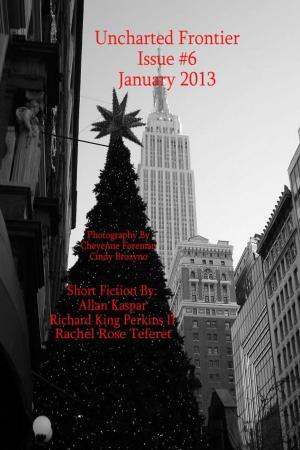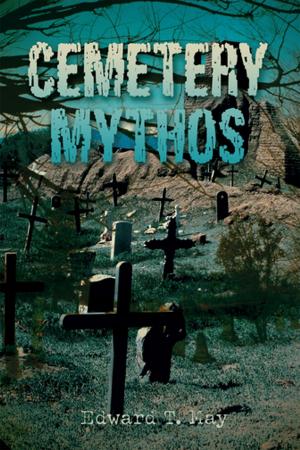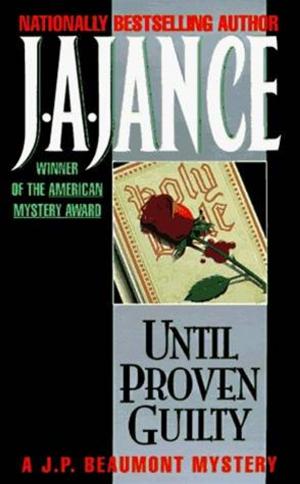| Author: | Ali Yusufali | ISBN: | 9780991539925 |
| Publisher: | Comfort Aid International | Publication: | April 14, 2014 |
| Imprint: | Language: | English |
| Author: | Ali Yusufali |
| ISBN: | 9780991539925 |
| Publisher: | Comfort Aid International |
| Publication: | April 14, 2014 |
| Imprint: | |
| Language: | English |
In January and February 2002, Harshad Parekh, a petty businessman from the Naroda Patiya slum in Ahmedabad, an active member of the hardline Hindu radical group RSS and a confidant to Chief Minister Moothy’s intelligence Chief, met with a group of activists to plan for the rejuvenation of the Hindutva cause in Gujarat. Elections were coming up soon and recent polls had the CM trailing the opposition in double-digit figures. With a plea from the man himself, Harshad felt duty-bound, proud and honored to be chosen for such an important task. With pacification from the opposition, minority Muslims were asserting themselves, making alarming inroads in business and politics. If something drastic was not done quickly, re-election of the CM would be impossible. After much brainstorming and debate, a grassroots movement of yatras by karsevaks, to and from holy sites all over the State and beyond, was formed. One such yatra, returning to Gujarat from Ayodhya in UP, stopped in Godhra, a small, sleepy, grimy town in Gujarat; a tragedy followed. One version, highly unlikely, is that fanatical Muslims, for motives unknown, torched the train and 58 innocent Hindu pilgrims perished. Another, plausible version is the fire ignited within the train, probably by a cooking stove, possibly someone making tea, a common practice across Indian trains then. The incident was ideal for Harshad Parekh and his fanatical group. Near perfect opportunities to act against the Muslims and bring them down several pegs. Charred bodies of victims were paraded in Hindu bastis, propagating Muslim cruelty, flaming fury. With tacit police and state approval and inaction from the CM’s office, rumors about a Muslim assault on Hindus were stroked till they became a fire of hatred that engulfed entire communities. Armed frenzied Hindu mobs moved across Muslim neighborhoods and butchered more than 2,000 people, slashing and burning communities. Pregnant women were cut up, women raped, humans, homes and businesses torched. Police forces either ignored the mayhem or joined in. Harshad Parekh was ecstatic, though some in the executive inner circle thought it was overdone and the savagery was overkill. New Delhi was already protesting, even contemplating sending in the army. There was worldwide condemnation, many Western countries calling for an inquiry into the inaction of the police and security forces. There was bound to be an independent enquiry and these tended to be impartial most times; Harshad Parekh and his men could be implicated and there would be consequences. But the CM had assured Harshad Parekh everything was under control; Harshad was now the key man for grassroots planning and execution. Going forward, the Party would look at this ability and leadership favorably. However, the CM had also sounded guarded, advising Harshad to stay away from the limelight for a few months, disappear from Naroda Patiya and lie low. He was instructed to spend a few months at the CM’s private farmhouse in the South, close to the town of Vapi. Harshad felt he had not extracted personal benefit from all the hard work he had planned and executed. To be asked to disappear for three months, away from his business and family would be hard. The place was remote, miles away from civilization. What would he, a city man, do on a farm for months at a time? He could not defy the Chief’s command but the confinement need not be dull. He would have some fun while at the farm. With the help of a few like-minded close friends, a plan was hatched. They decided to kidnap some Muslims, male and female and take them along. Men to degrade and women to have fun with. The following is a fictional account of what occurred afterwards. Although some places, prominent personalities, incidents and the resulting Muslim genocide are real, all characters in this book are the consequence of my vivid imagination. Any resemblance to any person, alive or dead is, of course, innocently coincidental.
In January and February 2002, Harshad Parekh, a petty businessman from the Naroda Patiya slum in Ahmedabad, an active member of the hardline Hindu radical group RSS and a confidant to Chief Minister Moothy’s intelligence Chief, met with a group of activists to plan for the rejuvenation of the Hindutva cause in Gujarat. Elections were coming up soon and recent polls had the CM trailing the opposition in double-digit figures. With a plea from the man himself, Harshad felt duty-bound, proud and honored to be chosen for such an important task. With pacification from the opposition, minority Muslims were asserting themselves, making alarming inroads in business and politics. If something drastic was not done quickly, re-election of the CM would be impossible. After much brainstorming and debate, a grassroots movement of yatras by karsevaks, to and from holy sites all over the State and beyond, was formed. One such yatra, returning to Gujarat from Ayodhya in UP, stopped in Godhra, a small, sleepy, grimy town in Gujarat; a tragedy followed. One version, highly unlikely, is that fanatical Muslims, for motives unknown, torched the train and 58 innocent Hindu pilgrims perished. Another, plausible version is the fire ignited within the train, probably by a cooking stove, possibly someone making tea, a common practice across Indian trains then. The incident was ideal for Harshad Parekh and his fanatical group. Near perfect opportunities to act against the Muslims and bring them down several pegs. Charred bodies of victims were paraded in Hindu bastis, propagating Muslim cruelty, flaming fury. With tacit police and state approval and inaction from the CM’s office, rumors about a Muslim assault on Hindus were stroked till they became a fire of hatred that engulfed entire communities. Armed frenzied Hindu mobs moved across Muslim neighborhoods and butchered more than 2,000 people, slashing and burning communities. Pregnant women were cut up, women raped, humans, homes and businesses torched. Police forces either ignored the mayhem or joined in. Harshad Parekh was ecstatic, though some in the executive inner circle thought it was overdone and the savagery was overkill. New Delhi was already protesting, even contemplating sending in the army. There was worldwide condemnation, many Western countries calling for an inquiry into the inaction of the police and security forces. There was bound to be an independent enquiry and these tended to be impartial most times; Harshad Parekh and his men could be implicated and there would be consequences. But the CM had assured Harshad Parekh everything was under control; Harshad was now the key man for grassroots planning and execution. Going forward, the Party would look at this ability and leadership favorably. However, the CM had also sounded guarded, advising Harshad to stay away from the limelight for a few months, disappear from Naroda Patiya and lie low. He was instructed to spend a few months at the CM’s private farmhouse in the South, close to the town of Vapi. Harshad felt he had not extracted personal benefit from all the hard work he had planned and executed. To be asked to disappear for three months, away from his business and family would be hard. The place was remote, miles away from civilization. What would he, a city man, do on a farm for months at a time? He could not defy the Chief’s command but the confinement need not be dull. He would have some fun while at the farm. With the help of a few like-minded close friends, a plan was hatched. They decided to kidnap some Muslims, male and female and take them along. Men to degrade and women to have fun with. The following is a fictional account of what occurred afterwards. Although some places, prominent personalities, incidents and the resulting Muslim genocide are real, all characters in this book are the consequence of my vivid imagination. Any resemblance to any person, alive or dead is, of course, innocently coincidental.















